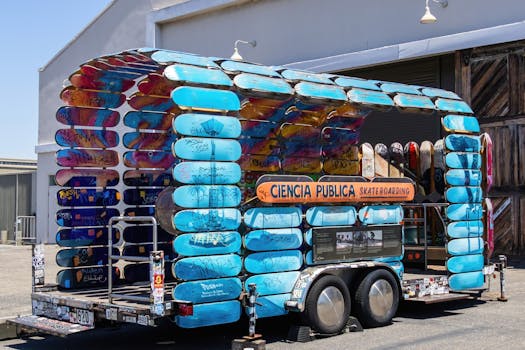L'Oréal-UNESCO International Awards for Women in Science: A Cape Verdean Perspective
The L'Oréal-UNESCO International Awards for Women in Science represent a beacon of hope and recognition for female scientists around the world. This global initiative, which celebrates scientific excellence and promotes gender equality in science, has a significant impact, especially in countries like Cape Verde, where opportunities for women in science can be limited.
The Importance of Recognition for Women Scientists
Female participation in science, technology, engineering and maths (STEM) still faces significant barriers. Studies show that women are under-represented in leadership positions and often face implicit biases that affect their careers. The L'Oréal-UNESCO programme plays a crucial role by:
- Raising the profile of women's scientific achievements.
- To inspire future generations of scientists.
- Provide financial support for innovative research.
- Combating gender stereotypes in science.
Global Impact and Relevance to Cape Verde
Since its creation in 1998, the L'Oréal-UNESCO programme has recognised more than 3,900 women scientists from over 110 countries. This recognition is not limited to the prize itself; it opens doors to international collaborations, additional funding and mentoring opportunities. For Cape Verde, a small island country with limited resources, this visibility and support can be transformative.
Challenges and Opportunities for Women in Science in Cape Verde
Cape Verde, like many developing countries, faces specific challenges in relation to gender equality in science. These include:
- Limited access to educational and research resources.
- Cultural norms that can discourage women from pursuing scientific careers.
- Lack of female role models in scientific leadership positions.
- Difficulty reconciling professional life with family responsibilities.
However, there are also growing opportunities. The Cape Verdean government has demonstrated a growing commitment to promoting science and technology, and there are a growing number of initiatives to support women's education and professional development. The L'Oréal-UNESCO programme can serve as a catalyst to accelerate this progress.
Inspiring Examples and Case Studies
Although there has not yet been a winner of the main L'Oréal-UNESCO prize specifically from Cape Verde, the participation of Cape Verdean scientists in regional programmes and scholarships associated with the programme has been remarkable. These participations demonstrate the scientific potential that exists in the country and the need for greater investment and support.
A hypothetical (but realistic) example could be a Cape Verdean scientist working in renewable energies, a crucial area for the country's sustainable development. Through a L'Oréal-UNESCO scholarship, she could have the opportunity to carry out advanced research at an international university, acquire new skills and knowledge, and return to Cape Verde to apply these innovations for the benefit of her community.
How the L'Oréal-UNESCO Programme Can Strengthen Science in Cape Verde
The L'Oréal-UNESCO programme can contribute to strengthening science in Cape Verde in several ways:
- Encouraging the participation of Cape Verdean women in scholarship programmes and regional awards.
- Facilitating collaboration between Cape Verdean scientists and international researchers.
- Supporting the development of mentoring programmes for young scientists.
- Raising awareness of the importance of science and technology for Cape Verde's development.
Conclusion: A Promising Future for Women in Science in Cape Verde
The L'Oréal-UNESCO International Awards for Women in Science are more than just recognition; they are an investment in the future of science and gender equality. For Cape Verde, this programme represents a valuable opportunity to empower women scientists, promote innovation and contribute to the country's sustainable development. By increasing the visibility of women's scientific achievements, providing financial support and promoting international collaboration, the L'Oréal-UNESCO programme can help build a brighter and more equitable future for women in science in Cape Verde.
The future of science in Cape Verde depends on investing in the talent and potential of all its citizens, including women. The L'Oréal-UNESCO programme plays a key role in this process, inspiring and empowering future generations of Cape Verdean scientists.
For more information on the programme and how to apply, visit: https://www.forwomeninscience.com/
Deadline for applications: 04 July 2025.


